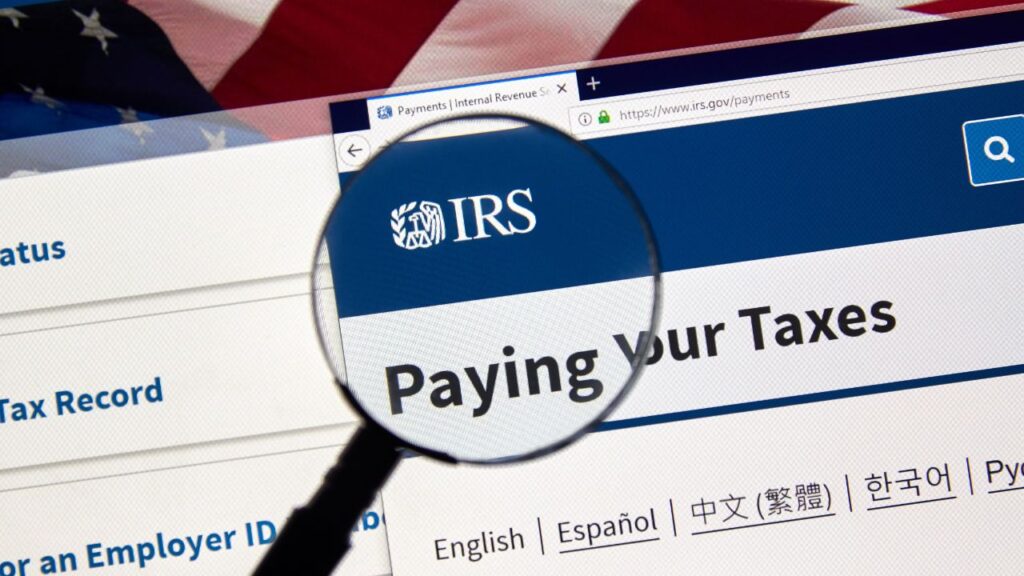The IRS is now accepting applications for the 2026 Compliance Assurance Process (CAP). This exciting opportunity is open from September 3 to October 31, 2025.
#IRS accepting applicants for 2026 Compliance Assurance Process. https://t.co/sRJuFxmxsA
— IRSnews (@IRSnews) August 19, 2025
Introduced in 2005, the CAP program offers a proactive approach to addressing tax issues. By fostering a transparent and cooperative relationship between large corporate taxpayers and the IRS, this initiative aims to enhance federal tax compliance. Participants can resolve any potential issues before filing their tax returns, ensuring a smoother process.
To apply for the CAP program, applicants must meet the following criteria:
- Possess assets of $10 million or more.
- Be a U.S.-based corporation that is either publicly traded and legally required to prepare and file SEC forms 10-K (annual report), 10-Q (quarterly report), and 8-K (current report), or a privately held C corporation, including those with foreign ownership.
This program is a valuable opportunity for large corporate entities to ensure compliance and streamline their tax processes through early resolution and ongoing cooperation with the IRS. Don’t miss the chance to be part of this innovative approach to tax management!
For those seeking private equity funding, it’s essential to submit comprehensive financial documentation annually. This includes audited financial statements prepared in accordance with U.S. Generally Accepted Accounting Principles (GAAP), International Financial Reporting Standards (IFRS), or any other method approved by the IRS. This requirement is specifically tailored for taxpayers applying for the CAP program.
Audited Financial Statements
Your audited financial statements must include an unqualified audit opinion from an independent auditor. Additionally, the net income or loss indicated in these audited statements must be reconciled with Line 4(a) of Schedule M-3, which corresponds to the global consolidated net income (loss).
In addition to annual submissions, applicants are required to provide unaudited quarterly financial statements. These statements help maintain transparency and provide ongoing insights into the financial health of the applying entity.
Compliance with Government Agencies
It is also crucial that applicants are not under investigation or involved in litigation with any government agency. Such situations could potentially restrict the IRS’s access to current tax records and might affect the application process.
Welcome to our latest insights on the 2026 PAC application period. This blog post delves into the critical updates and highlights that every applicant should be aware of. Stay informed and make the most of your application process with our comprehensive guide.
Key Updates for the 2026 PAC Application Period
The 2026 PAC cycle introduces some noteworthy updates that can significantly impact applicants. Let’s explore these changes and understand how they might affect your submission.
Open Year Criteria
For the 2026 CAP cycle, the open year criteria remain in place to ensure clarity and fairness. Applicants are allowed to submit only one open declaration, along with one unsubmitted open declaration, on the first day of their fiscal year. However, there are several exceptions to this rule, including:
- Pending resolution of the Advance Pricing Agreement
- Assistance from the Competent Authority
These exceptions ensure that applicants have the flexibility needed under specific circumstances.
Legislative Impacts: IRA and CHIPS Acts
The Inflation Reduction Act (IRA) and the Creating Helpful Incentives to Produce Semiconductors (CHIPS) Act have introduced substantial changes to the tax code. These acts include:
- The Corporate Alternative Minimum Tax (CAMT)
- The excise tax on stock buybacks
- Various clean energy credits
These provisions will require careful consideration and review by affected taxpayers. The introduction of these legislative measures aims to reshape certain aspects of the economic landscape, offering both challenges and opportunities for businesses.
Recognizing that these reviews might initially extend beyond the CAP deadlines, we have introduced an exception to the closed/open year eligibility requirement. This means that a fiscal year remaining open solely due to an unresolved tax issue with the IRA or the CHIPS Act will not be counted as an open return on the first day of the applicant’s CAP year for the purpose of meeting the CAP eligibility criteria.
Eligibility Criteria for New Applicants
To qualify for participation in the program, a new applicant undergoing evaluation must not have more than three fiscal years open for assessment on the first day of the applicant’s CAP fiscal year. The examining team will assess the feasibility of closing these open fiscal years within 12 months from the start of the applicant’s CAP fiscal year to maintain their eligibility. Upon acceptance, the applicant must sign the CAP MOU.
Expanded Eligibility Criteria for 2026 CAP Cycle
Great news for those eyeing the 2026 CAP cycle! The IRS is continuing with the expanded eligibility criteria that were announced last year. This opens up new opportunities for various types of businesses to participate.
Who Can Apply?
- Publicly Traded C Corporations: As before, these entities remain eligible.
- Private C Corporations: This year, the door is open for privately held C corporations, including those with foreign ownership.
- Private Equity Applicants: These entities are welcome, provided they meet specific requirements.
Financial Document Requirements
To ensure compliance, applicants must submit audited financial statements. These statements must be prepared according to one of the following:
- U.S. Generally Accepted Accounting Principles (GAAP)
- International Financial Reporting Standards (IFRS)
- Any other method deemed appropriate by the IRS
Important Note on Financial Statements
The audited financial statements must specifically pertain to the taxpayer applying for the CAP program. It’s crucial to note that audited statements from related entities or parent companies will not be accepted.
With these expanded criteria, the 2026 CAP cycle is set to be more inclusive and accessible than ever before. Ensure your application stands out by adhering to these guidelines!
Official source: https://www.irs.gov/newsroom/irs-accepting-applicants-for-2026-compliance-assurance-process
